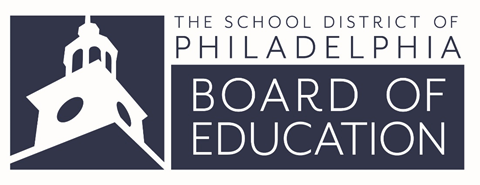‘There has been a learning loss’: NYC Education Department launches plan to address ‘COVID achievement gap’ – By Michael Elsen Rooney, NY Daily News
The city Education Department is launching a new plan to help students recover from learning loss due to the pandemic and shift to remote learning, officials said Thursday.
“It’s time to really reckon with a challenge we’re seeing very, very clearly, which is the way that COVID has stood in the way of our kids’ education, the fact that there has been learning loss and that there will still be learning loss ahead that we have to compensate for and overcome,” Mayor de Blasio said at a news conference Thursday.
“Clearly there will be a COVID achievement gap and we have to close that COVID achievement gap,” he said.
The first step will be administering a series of “diagnostic” tests citywide to measure the scope of learning loss, said city Schools Chancellor Richard Carranza.
“You can’t know where to focus until you know what to focus on. That’s the whole point of these formative assessments,” Carranza said.

As Districts Return to Remote Learning, Are They Any Better Prepared?- By Emily Tate, EdSurge
When educators describe their frenzied switch to remote learning in the spring, most talk about being caught off guard. Some mention how little they knew then—about virtual learning, as well as the virus that forced them out of their school buildings. Others shudder at the tight timeframe they were given to completely reconstruct the instructional day. There was no time for preparation or “best practice.” It was an emergency.
But nine months have passed since then. Many school districts used the summer to regroup, to train their staff and to get a plan for the fall—first on how to reopen, and then on how to respond should the situation change, for better or worse. One thing was clear: Many felt that what happened in the spring should not happen again. They needed to find ways to reach their students, engage them, motivate them and connect with them in ways that built on the lessons they had learned from the first few months of the pandemic.
Since the start of the new academic year, schools in many states reopened for in-person instruction in some capacity. But as the winter surge of the coronavirus has crept in, with rising infection rates and growing case counts, many have returned to full-time remote learning. According to an EdSurge/Social Context Labs analysis, 22 percent of a sample of 375 districts around the country were fully remote on Nov. 1. By the end of the month, that figure had ticked up to 38 percent.
At least this time, they feel better prepared.

How one California school district is moving forward with math in the pandemic – By Sydney Johnson, EdSource
In a school year when in-person instruction is already limited, California math teachers are making up for lost time on the fly.
Since school campuses closed in March due to the pandemic, education experts have sounded the alarm that certain groups, such as low-income and special education students, could fall further behind academically than their peers. And now test scores show that students are struggling in math more during the pandemic than in previous years.
But exactly how school districts have planned to mitigate learning gaps looks different depending on the district and even classrooms within a school.
One of California’s largest school districts, San Diego Unified, is pushing ahead with grade-level math content and addressing questions and gaps in learning as they come up during lessons. That contrasts with past approaches to so-called learning loss — when students lose academic skills and knowledge over a period of time — that have involved testing students at the beginning of the year to determine where they need extra help and offer remediation based on the results.

‘A new direction’: Philadelphia school board shifts focus toward academics and equity work – By Kristen A. Graham, The Philadelphia Inquirer
Philadelphia’s school board is changing the way it operates.
The board on Thursday night adopted what it’s calling “Goals and Guardrails,” guiding principles that will shift its focus and, come January, its meetings, putting a sharper focus on academic achievement. By extension, the effort will put Superintendent William R. Hite Jr. and his administration on the hot seat. The plan will also strongly emphasize work around antiracism and equity among district schools.
In its first two years of existence, the board — and its predecessor, the state-run School Reform Commission — was too focused on inputs and not on outputs, and how well Philadelphia’s 120,000 students read and do math and are prepared for college and career, Board president Joyce Wilkerson said.
An analysis of SRC business showed that the commission spent just 10% of its time focusing on student achievement, in part because the district has been in “survival mode” for the last 20 years. The board must keep its eye on student achievement, Wilkerson said, even as another financial crisis looms.











